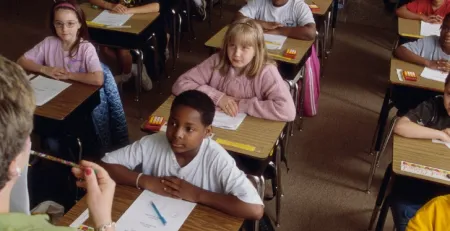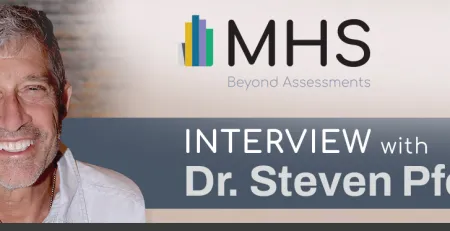Unlocking Potential with MHS’ Naglieri General Ability Tests
In a report from the Gifted Education Research and Resource Institute at Purdue University, it’s estimated that as many as half of gifted students, some 3.6 million children in the U.S. may be missing out on gifted education.
Tressa Wright previously worked with a gifted education team for a school district in the midwestern United States. Tressa and her team experienced the same challenge of equitable identification that many gifted and talented teams face across the country. In her previous role, Tressa contributed insights on implementing the Naglieri General Ability Tests in her district to increase equitable identification of gifted and talented students.
Tressa loved the Naglieri General Ability Tests so much that she wanted to work with MHS to help bring these tests to more schools across North America. Tressa is now an Account Executive for MHS’ Gifted and Talented team. We chatted with Tressa about what influenced her to become an early adopter of the Naglieri General Ability Tests and the results that came along with it.
The interview below has been edited for length and clarity.
What initially moved you to look for a more equitable gifted and talented assessment?
TRESSA: After analyzing our district-gifted data, we researched several identification processes in our state and several surrounding states, and we partnered with our state director of gifted education to see what test options existed. Our team then began digging into different testing options to see which option best aligned with the goal of our team. This is how we landed on the Naglieri General Ability Tests. While it was still in the early adopter phase (not yet available in wide release), we believed the test would help us progress toward our goal.
As an early adopter of MHS’ Naglieri General Ability Tests, what influenced you to implement the tests in your school district?
TRESSA: We were initially intrigued by what the Naglieri General Ability Tests had to offer. The tests were specifically developed to address the need for equitable assessment of gifted students from diverse cultural, linguistic, and socioeconomic backgrounds so they can receive educational opportunities for their abilities. After looking at the initial pilot project data, we were impressed by the tests’ ability to deliver on solving this challenge. Finally, we were moved by the author’s commitment to this cause; their book explicitly states, “…we wanted to ensure we provided access for all students who require the challenge of gifted education. ”
Beyond what I previously mentioned, the MHS folks were amazing. Updating our identification process was a big task for our team. Angelina Paolozza [Principal Research Scientist, MHS], Mikkel Maharaj [Research Scientist, MHS], Debbie Roby [Business Development Manager, MHS], and really everyone we worked with at MHS partnered with us in the process. They walked alongside us. Angelina was a lifesaver! She was a tremendous partner throughout our implementation. Not only did I learn about the test administration and interpreting the data, but I also had a chance to learn about the development and psychometrics of the tests and the history behind the test development. You could see and feel the team’s dedication, from removing content bias to the analytics.
After a year of implementation, our district started to see progress toward our goal of ensuring our gifted screening and identification process effectively identified all gifted and talented students without bias or underrepresentation in any area.
Can you reflect on some of the results that you found from the tests?
TRESSA: We had several celebrations. Most importantly, our team started conversing with teachers and provided data for our underrepresented students who may not have stood out on an achievement test. However, a different story emerged when given an opportunity to demonstrate their reasoning ability.
- We saw progress toward a more balanced male-to-female ratio.
- We also noticed progress toward gifted program enrollment mirroring the district enrollment demographically.
- Lastly, our data showed an increase in the identification of Hispanic students and an increase in the identification of multi-racial students.
Why do you believe it is critical to increase equitable identification of gifted and talented students?
TRESSA: Underrepresented students may not stand out on an achievement test because of different test barriers, but they may shine when given an opportunity to demonstrate their reasoning ability.
Our district opted to do universal screening of entire grade levels. We had several unique individual student cases as we shifted our identification process, which led to interesting conversations with educators and parents. Students who may not have been on a teacher’s radar for gifted programming were being looked at in a new light. It was wonderful to share with teachers an area of strength for students, whether verbal, nonverbal, quantitative, or a combination of strengths. As the MHS research indicated, the Naglieri General Ability Tests helped us identify more English Language Learner (ELL) students.
Overall, the combination of a thoughtful test design that minimizes the influence of a student’s background, and flexible scoring options that adapt to diverse contexts, make MHS’ Naglieri General Ability Tests a more equitable method of assessing diverse populations for gifted programs and for unlocking students’ full potential.
Get in touch with a member of our team today to discuss using the Naglieri General Ability Tests in your school district.










